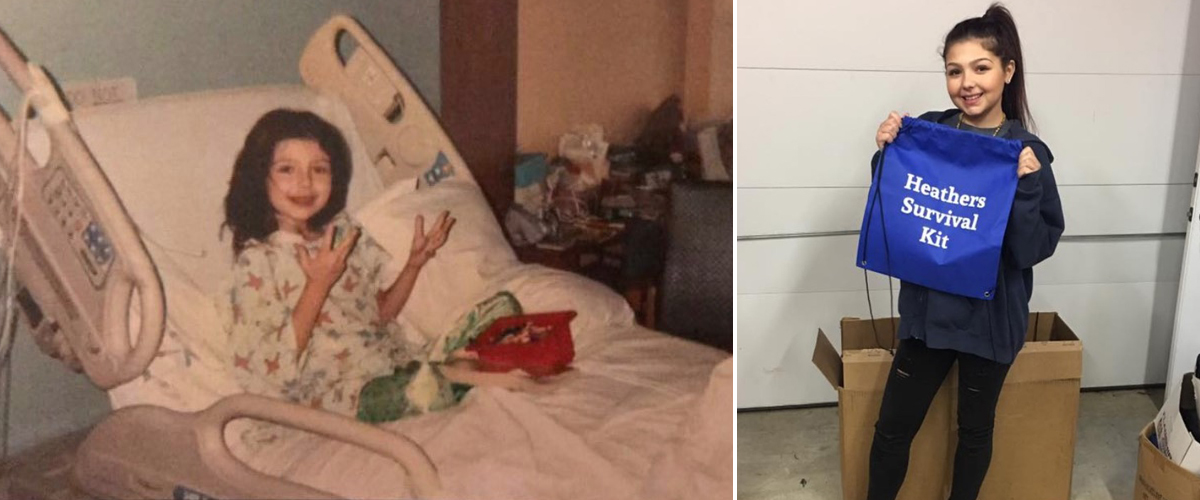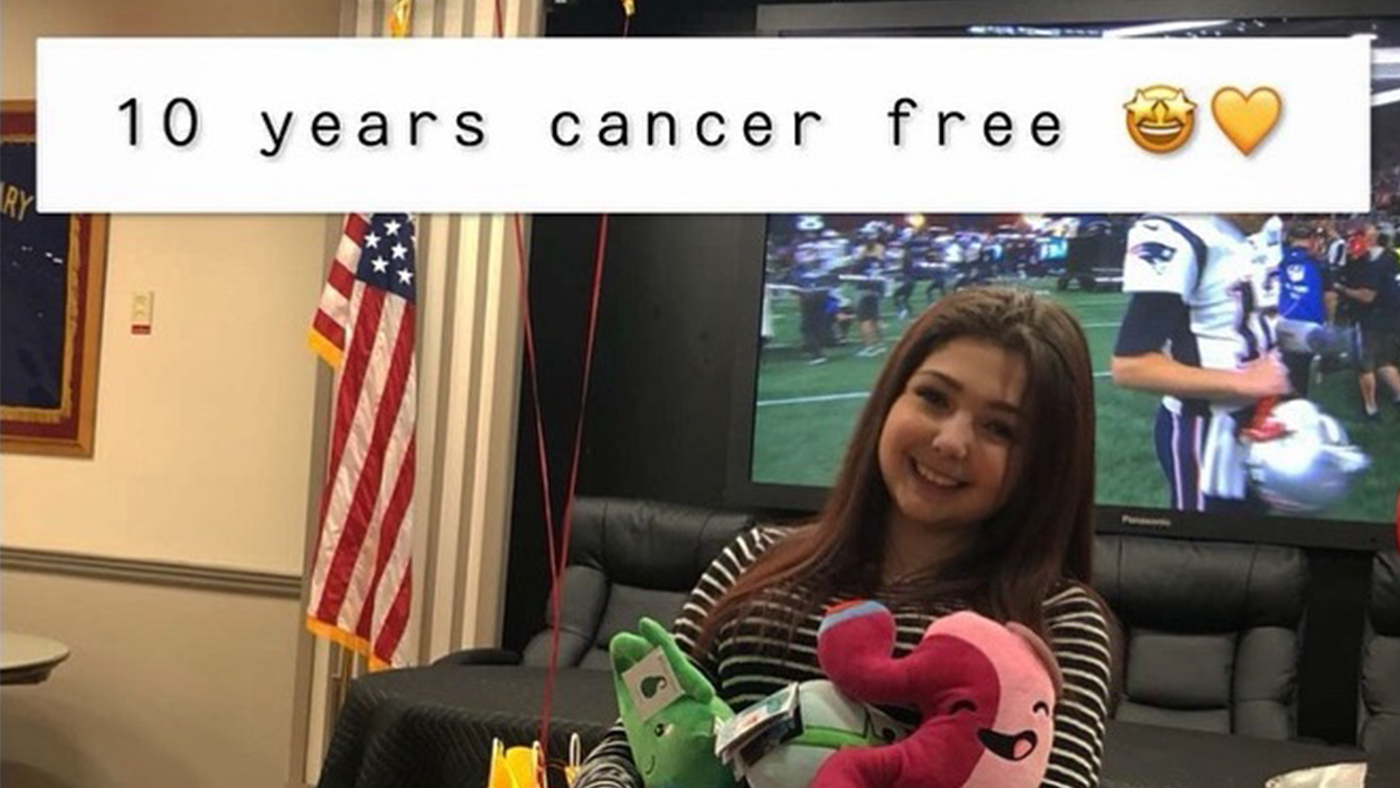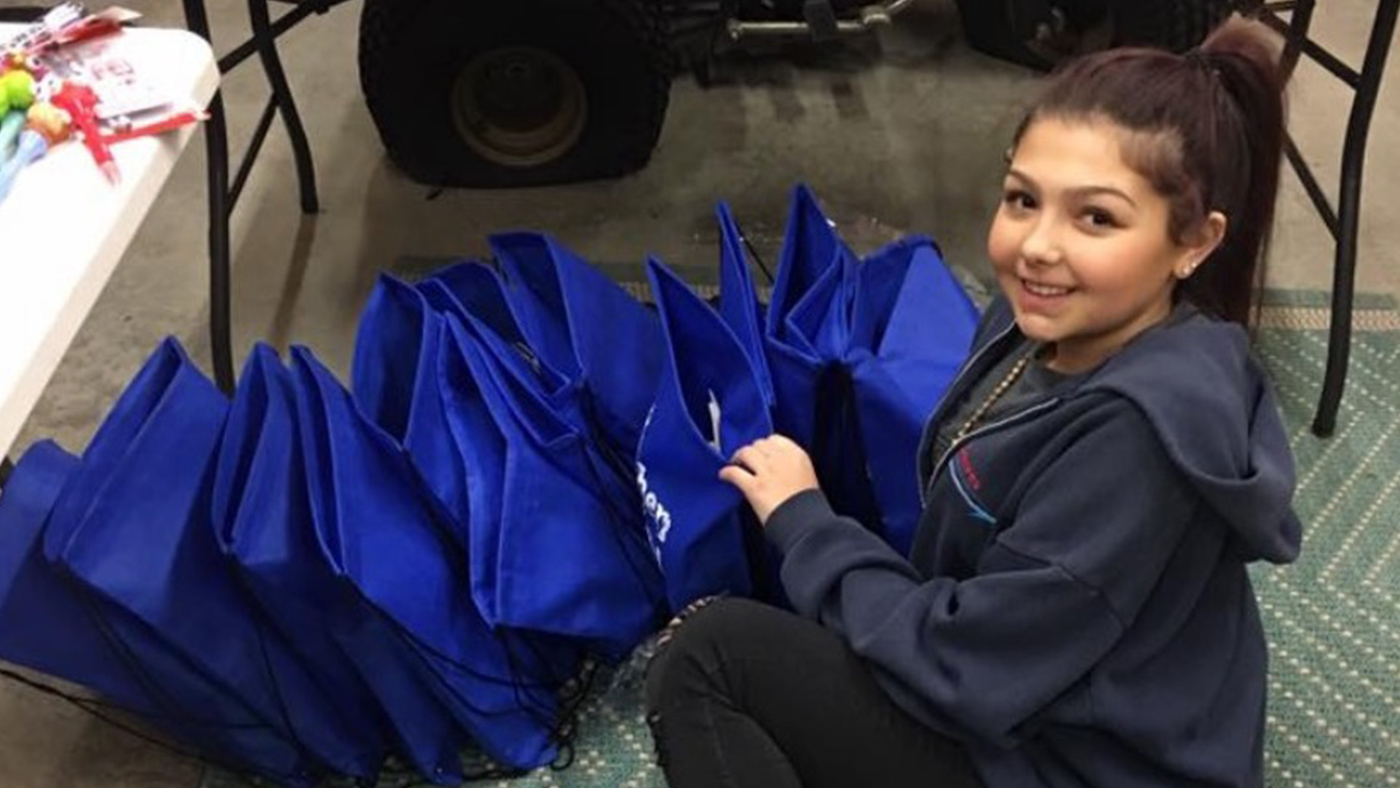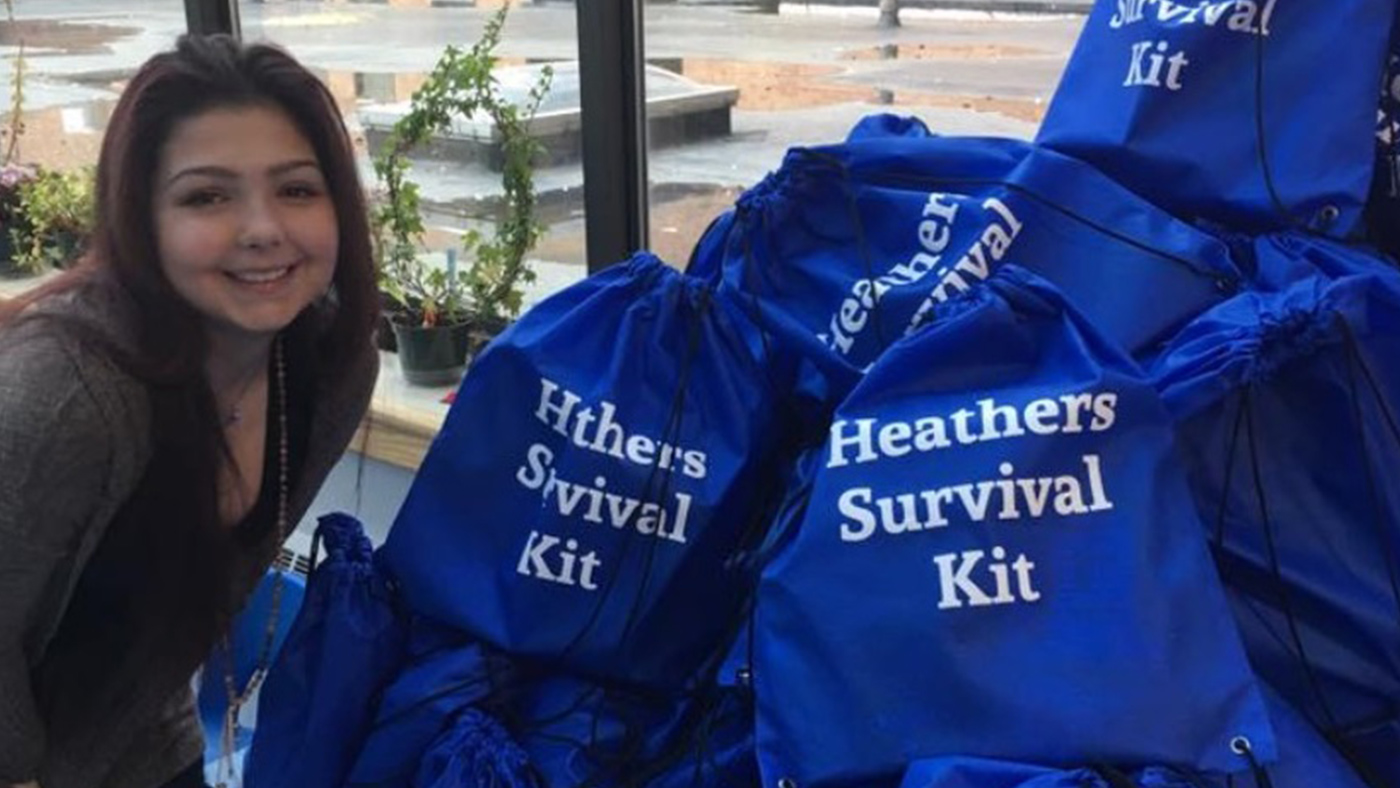Amazing Things: Heather McNamara
After a groundbreaking transplant surgery saved her life, this high school senior celebrates 10 years of being cancer-free.

In 2011, Heather McNamara and her family shared her journey after a cancer diagnosis and a transplant surgery at NewYork-Presbyterian. Sadly, she passed away in June 2024.
In many ways, Heather McNamara is just like any other senior at East Islip High School on Long Island’s South Shore. She loves spending time with her friends. She’s a Girl Scout, helps out with her school yearbook, and is in the National Honor Society. She also has learned sign language and teaches other children how to sign as well.
But when she was a child, she wasn’t expected to make it to middle school. That’s because medically, she is far from ordinary.
As a toddler, Heather experienced severe stomach pain and frequent vomiting. Her doctors were baffled and attributed it to allergies or non-life-threatening stomach issues.
When, on September 7, 2007, Heather passed out in her father’s arms, the McNamaras’ world was forever changed. She was 5 years old. At the hospital, doctors discovered a cancerous tumor at the base of her stomach.
It was removed that day during a delicate surgery. But cancer was found in her pancreas the following February, this time wrapping itself around the major blood vessels to her spleen, liver, stomach, entire small intestine, and part of her large intestines, and causing a blood clot in the blood vessels of the intestine and the liver. Surgery was deemed too dangerous, if not impossible, and Heather was given an experimental oral chemotherapy. It didn’t work and left her feeling sick. Frantic, her parents spent months searching for a doctor willing to treat Heather, but they received the same answer: The cancer had progressed to an incurable, inoperable stage. Doctors urged her parents to take Heather home so she could live out her last few months peacefully.
Then they met Dr. Tomoaki Kato, the chief of abdominal organ transplants at NewYork-Presbyterian/Columbia University Irving Medical Center. While at the University of Miami, Dr. Kato pioneered and performed “ex vivo” surgery on a 62-year-old patient, in which he’d removed several of her organs in order to extract a tumor similar to Heather’s, and then put them back inside her. The procedure is also called an “auto-transplantation” because the patient’s own organs are re-implanted.
The McNamaras met Dr. Kato on December 10, 2008. “He said he was willing to try and operate on Heather and that she had a 50-50 chance of surviving the surgery,” says her mother, Tina. It was Heather’s 7th birthday.
In February 2009, Heather underwent the 23-hour procedure. Three surgical teams, led by Dr. Kato, removed her stomach, liver, spleen, pancreas, and large and small intestines, and placed them on ice with a preservation solution. They next removed the tumor while preparing her body to receive the organs that were healthy enough to be re-implanted. Heather’s father stood by to donate his own liver if necessary.
While the doctors were able to remove a tennis ball-sized tumor, Heather’s stomach, pancreas, and spleen were too damaged by the cancer to function properly. Without a pancreas, Heather would be diabetic, requiring vigilant blood-sugar monitoring and lifelong insulin and pancreatic enzyme replacement medication. In place of her stomach, Dr. Kato and his team created a pouch from intestinal tissue to hold food before it moves to her small intestine.
Heather was released from the hospital 33 days after her groundbreaking operation, the first of its kind performed at NewYork-Presbyterian. She took a year off to rest, recover, and become familiar with managing her diabetes through daily blood tests and insulin injections. She eased back into eating with a diet mostly of vegetables and smoothies, and was homeschooled to keep up with classmates before returning to school in third grade.
Though managing Heather’s diabetes can be particularly challenging, Tina calls her daughter’s recovery “truly miraculous.”
“We are very grateful to Dr. Kato for pushing the envelope and taking on Heather’s case because no other doctor would. Heather wouldn’t be here today if it weren’t for Dr. Kato,” Tina says.
Knowing how well Heather is doing today, Dr. Kato says, “I’m so glad we made the decision to move forward with the surgery.”
While the family lives with a degree of uncertainty about Heather’s future, as hers was the first ex-vivo operation to be performed on a child, Tina says another child in the New York area had a similar procedure a year after Heather’s. Tina and Heather were asked by hospital staff to come and provide moral support for the patient and mom. Heather remembers spending hours with the patient at the bedside, where she shared her own story and provided hope. That experience sparked a desire in Heather to give back to others.
“My mom has really been my rock through everything these last 10 years,” says Heather. “She’s taught me that you’ve just got to keep going and when you help others you really help yourself.”
After everything Heather has been through, she says, “I feel very blessed. I got a second chance at life. I live every day like it’s the last.”
He said he was willing to try and operate on Heather and that she had a 50-50 chance of surviving the surgery.
Tina McNamara
February 2019 marks Heather’s 10-year anniversary of her ex-vivo surgery. The busy 17-year-old has devoted countless hours over the years to giving back to others in need. She is president of her school’s Key Club, an activist, and a volunteer in her community and has raised well over $45,000 for various charities, including the Juvenile Diabetes Research Foundation and Make-A-Wish Foundation. Heather’s most recent project was creating activity bags to give to pediatric patients in the hospital. She called them “Heather’s Survival Kits” and has donated them to local hospitals.
“It’s incredibly gratifying to see how well she is doing, and all that she’s accomplished,” says Dr. Kato. “She’s growing up to be quite an inspiring young woman.”
Heather will be attending college in the fall. Her experience has inspired her to pursue a career as a child life specialist.



